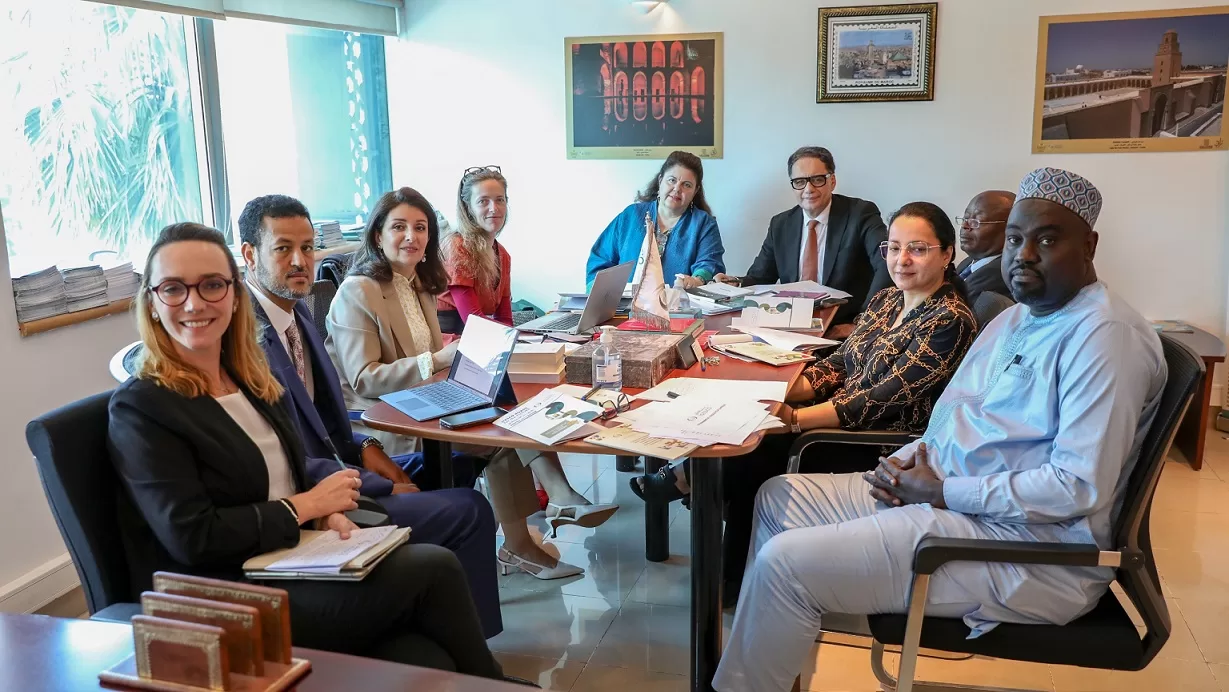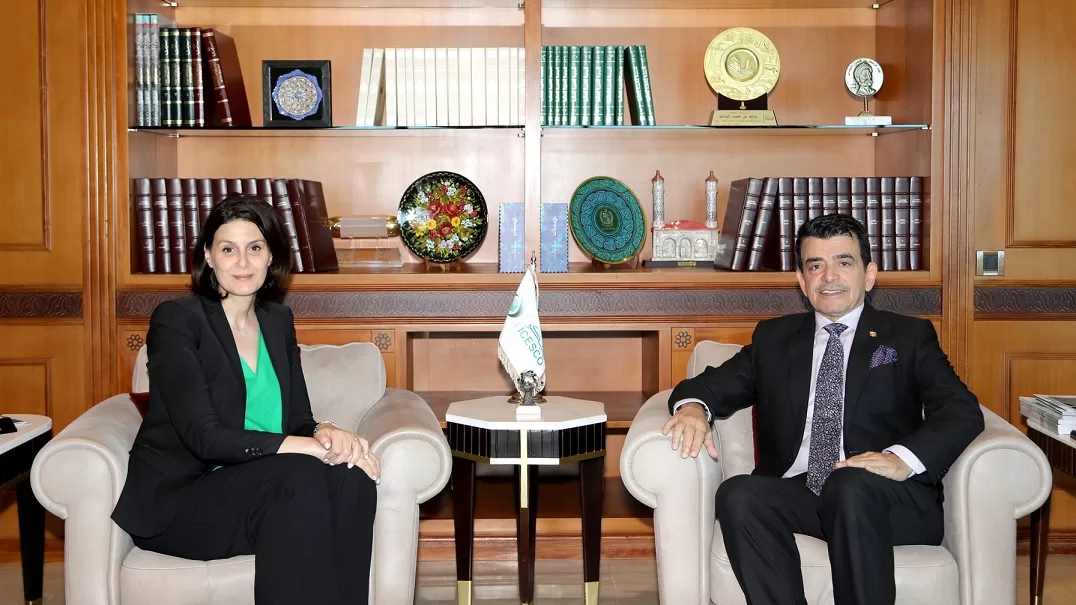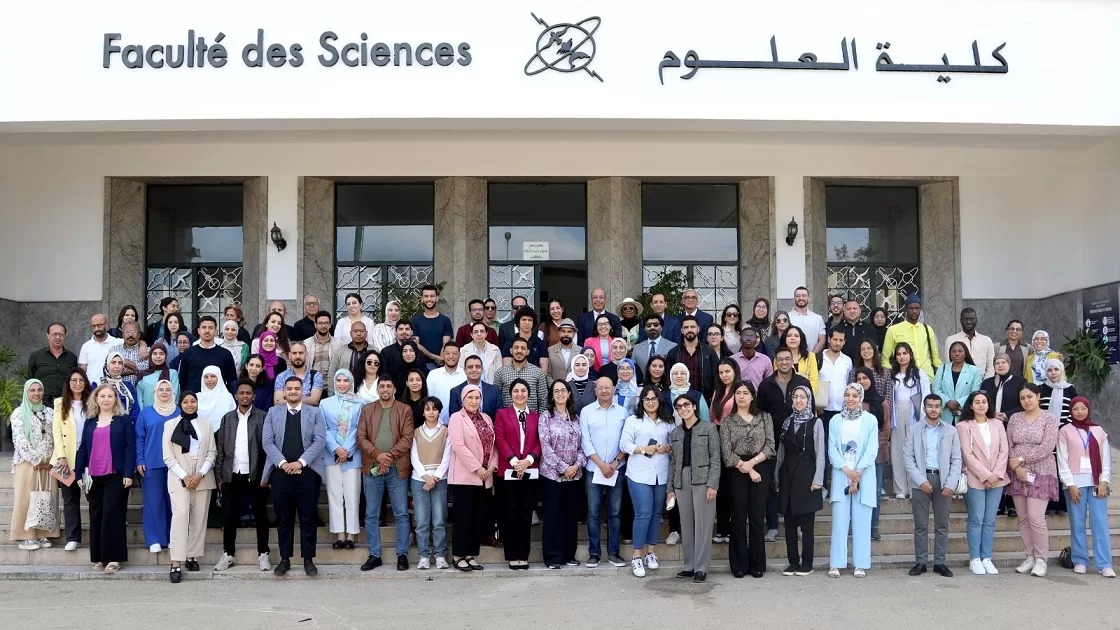
At Baku Global Forum: ISESCO Director General calls for spreading the culture of civil and peaceful alliance, entrench the fundamentals of understanding among nations and peoples on building world peace
18 March 2019
Baku: 16/03/2019
At Baku Global Forum: ISESCO Director General calls for spreading the culture of civil and peaceful alliance, entrench the fundamentals of understanding among nations and peoples on building world peace
The Director General of the Islamic Educational, Scientific and Cultural Organization (ISESCO), Dr Abdulaziz Othman Altwaijri took part at the 7th Session of Baku International Forum on “New Foreign Policy”, which kicked off today in Baku, Republic of Azerbaijan, in the presence of state leaders, heads of governments, and international politicians, intellects and academicians.
In his address, Dr Altwaijri talked about “Future and Motives of Alliances”, that he deemed to be a major theme that falls within the international policy whose fundamentals have been inspiring Baku Global Forum since its inception given its close relevance to the difficult historical stage the world is undergoing, adding that, at this stage, reasons and motives of alliances between countries are ever growing and getting even stronger for various purposes from one alliance to another and at all levels.
ISESCO Director General started by defining the word “alliance” which refers from an international legal perspective, to a contractual relationship between one or more countries through which measures of mutual support are undertaken in the event of wars. He added that it is a substitute for the policy of isolation, which rejects to share any responsibility for the safety of another country, stating that the policy of alliance has often been historically linked to the balance of power, and was criticized based on historical evidence for increasing the possibility of outbreak and spread of wars.
Furthermore, Dr Altwaijri said that during the modern and contemporary eras, the world has witnessed economic, security, military and political alliances between two countries with similar viewpoints and common interests, or between a group of countries with convergent policies in several vital fields. “Actually, alliance by nature includes all of these types of alliances that ensure the vital interests of the allies” he concluded.
However, ISESCO Director General stated that “the question posed by international law experts, one that we hold as of paramount importance, which we re-raise in this context, is: had the international order been established after the Great Wars on alliance or on consensus that involves abiding by a charter which is a contractual relationship between the countries of the world?”
Dr Altwaijri also highlighted that the foundations underlying modern international relations were established by virtue of the Westphalia Peace Treaty signed in 1648 which resulted in an alliance that laid the governing principles of the nation states and rules governing international relations and put an end to the Thirty Years’ War, the religious conflict between Protestants and Catholics that broke out in 1618; thus, this landmark convention, which entered the history of international law, laid the foundations of the modern form of peace alliance between countries.
He added that the League of Nations, founded on 28 June 1919 by virtue of the Versailles Treaty and dissolved on 20 April 1946, which may be considered from different perspectives a development of Westphalia Treaty, was an advanced form of alliance, which was suitable for that historical period, among countries which believed in peace and together resolved to work in every way to prevent the reoccurrence of the horrific atrocities and terrific disasters suffered by humanity during the First Great War.
Moreover, Dr Altwaijri stated that “In 1945, the United Nations came with a new form of alliance between the countries of the world that all agreed to be unified under the emblem of the United Nations”, adding that though the UN Charter does not contain the term “alliance” with its current conception, nations which agree and share the international principles that constitute the source of international law, are in fact allied countries in the comprehensive and deep sense of alliance.
On this theoretical basis, and considering this legal background, ISESCO Director General said that “the UN is a high-standards and wide-ranging alliance between a number of countries that is governed by the Charter of the international organization from the view that the United Nations, which are united countries, are indeed, united nations and countries bound by a contractual relationship embodied by the Charter.”
In addition, Dr Altwaijri affirmed that the rapid changes happening in the world at all levels, and the ensuing serious regional crises and severe international problems, at the economic and security levels, have aggravated the threats targeting international peace at its very heart. He also stated that all of these are driving factors and strong motives for the emergence of new alliances either at the regional or at the international levels, adding that the most remarkable of them with strong presence at the international scene today is the Global Counterterrorism Alliance, which aims to combat the so-called Islamic State (Daesh). “Lacking in support of international law in the absence of a Security Council resolution under Article 7 of the UN Charter, this alliance was nevertheless founded under the leadership of the United States of America” ISESCO Director General emphasized “the human objectives and peaceful purposes, which it endeavors to achieve, provide it with international legitimacy regardless of the lack of clarity regarding some of its details”
He also stated that that the aims of the Global Counterterrorism Alliance, with more than sixty member countries, are part of the objectives of NATO which was founded in 1949. “Is this alliance a substitute for NATO? Or, is it because urgent security considerations and other political calculations necessitated a new alliance operating outside the realm of NATO?” Dr Altwaijri asked.
Thus, ISESCO Director General said that this question takes us to exploring the future of alliances which are likely to expand whenever the security situations worsen in various parts of the world and regional and international crises break out, without coming into conflict with, in any way whatsoever, with the UN charter and objectives of the regional alliances, both the economic and security ones that emerged in many corners of the globe.
Moreover, Dr Altwaijri stressed that “while the security considerations mostly underlay the emergence of alliances in such a way as they are often associated by the international public opinion in international politics with military defense and countering security threats, the future will show to the world new forms of alliances which include according to our academic specialty, but are not limited to the following: The “alliance of civilizations” which is based on a strong basis of “alliance of cultures” and why not “alliance among the followers of religions” which is broader in scope and loftier in content and aims basically to promote the values of human brotherhood and spread the culture of justice, peace, harmony, dialogue and coexistence.”
He further stated that the “Alliance of Civilizations” and “Alliance of Cultures” are fully consistent with the Charter of the United Nations, keep with the principles expressed in the decision of the former UN Secretary General to set up the High Representative for the United Nations Alliance of Civilizations, and abide by Article 1, Paragraph 3 of the UN Charter which seeks to “achieve international co-operation in solving international problems of an economic, social, cultural, or humanitarian character, and in promoting and encouraging respect for human rights and for fundamental freedoms for all without distinction as to race, sex, language, or religion.”
Dr Altwaijri quoted that the Alliance of Civilizations, in its essence and noble objective “seeks to forge collective political will and to mobilize concerted action at the institutional and civil society levels to overcome the prejudice, misperceptions and polarization that militate against such a consensus. The Alliance hopes to contribute to a global movement which, reflecting the will of the vast majority of people, rejects extremism in any society.” he also added that this civilizational alliance serves the goals of world peace in terms of range of its influence more than what the security alliances often do.
“To lay solid foundations for an advanced and non-conventional human alliance, more efforts should be deployed at all levels in order to promote the values of cultural, civilizational and religious alliance, spread the culture of civil and peaceful alliance, entrench the fundamentals of understanding among nations and peoples on building world peace through this lofty form of human alliance” ISESCO Director General highlighted. “As such, change in international political conceptions can only be spurred through broadening the scopes of alliance to encompass the human issues, which through their ideals, go far beyond and above the conventional security and defense levels” he added.
Dr Altwaijri called upon alliances to pay attention to other international vital issues rather than exclusively focusing on security and military matters, and reaffirm the need for establishing human, civilizational and cultural alliances and go beyond the narrow conception of alliance that binds two or more countries.
He further stressed that the historical period the world is undergoing requires renewing the international political thought; updating the notions of international law; developing mechanisms and means in such a way as to observe international conventions, agreements and declarations; and developing advanced and multi-faceted forms of alliance that keep up with the constant changes and meet the requirements of peace, security and comprehensive sustainable development with a view to build a new world order on the basis of international law.
“There are so many reasons and motives for establishing new generation alliances that essentially serve and meet the needs of peoples for forging new and flexible mechanisms to build world peace; countering waves of hatred, racism, segregation, defamation of religions and their symbols; and fighting violent extremism and terrorism in all their forms” ISESCO Director General stressed.
In conclusion, Dr Altwaijri reaffirmed that “this is an aspect of the new stage of alliances”, stating that there are many indications of their increase and of the need for their establishment to address the new challenges triggered by the fourth industrial revolution, now called “Globalization 4”, which some observers of the international political and economic changes think will be more pervasive and impactful on the economies of both developing and emerging countries. Thus, he emphasized the need to change the traditional and customary conception of alliances and strive for innovation in the international political thought to come up with advanced forms that allow for using the available capabilities through creating developed, flexible and multi-disciplinary alliances on the basis of international legitimacy in order to eliminate the exacerbating threats that target to jeopardize world peace and security.




